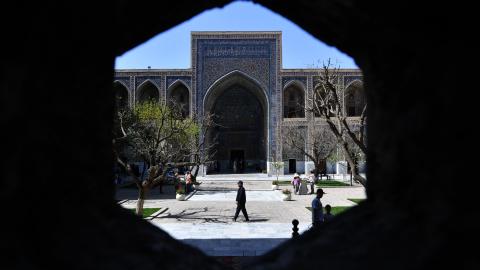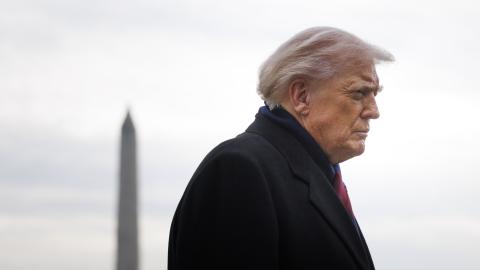Under an ominous headline, the AP reported on January 24 that “Fraud plagues global health fund”. The article went on to claim in its lead-in sentence that the Global Fund to Fight HIV/AIDS, TB and Malaria’s newly enforced inspector general’s office found that “as much as two-thirds of some grants eaten up by corruption”.
One had to read further and determine only a “tiny fraction of the $10 billion that the fund has spent since its creation in 2002” had been examined. Then, the grants examined were limited to Zambia, where $3.5 million went undocumented; Mali, where 36% of the funds was misspent; Mauritania, where a full 67% of money spent on anti-AIDS programs was misspent; and Djibouti, where 30% of grants was misspent.
In the AP article, Global Fund officials “blame the misspending on the lack of financial controls among the grant’s recipients, many of which are African health ministries whose budgets are heavily supported by the fund. Others are nations or international organizations without the resources to deal with pervasive corruption”.
Public notices were issued by the governments of Germany and Sweden to the effect that they were withholding/suspending their funding for 2011-2013 until the allegations can be more thoroughly investigated.
On 24 January, the Global Fund released an official comment on the AP article, saying “the Fund has zero tolerance for corruption; there are no new revelations in the media reports as the Inspector General listed grave misuse of funds in four of 145 countries last year; and, the Fund deploys some of the most rigorous procedures to detect fraud and fight corruption of any organization financing development”.
Several blogs attempted to deflect criticism from the Global Fund to other institutions. The Center for Global Development (CGD) blog posed this question: “is the Global Fund the only offender?” It went on to comment on USAID’s audit of PEPFAR, saying that no recommendations were provided to address the identified problems in its Mother-to-Child Transmission of HIV program. CGD explained that “this non-transparent sharing of information does not allow us to understand how the U. S. Government is taking action against fraud that occurs in its airtight oversight procedures”.
A response to the CGD blog stated: “there’s corruption in the U. S. health system”, citing how HHS recovered $4 billion by cracking down on fraud in Medicare and Medicaid systems. In an accompanying comment, CGD said: “did this make big news?” Going on further, the blog opined that “the reaction to the GF’s fraud investigation and action seems terribly misguided by irresponsible news reporting from the AP … and why is it being reported now?” Another CGD blog commentator stated that the AP story reported on $34 million of fraud out of total disbursements of $13 billion—or about 0.3%, saying “I suspect Wall Street would be envious of such low levels of fraud and abuse.” A Fund spokesman said: “the messenger is being shot … we would contend that we do not have any corruption problems that are significantly different in scale or nature to any other international financing institution”.
None of the blogs/official commentary addressed the supposed beneficiaries of the Fund who had been disenfranchised by this abuse: patients affected by AIDS, TB or malaria.
Those who defended the Global Fund, and the official response from the Fund itself, raised more questions than they answered. For instance:
# Why does “the U. N. Development Program (UNDP) manage more than half of the fund’s spending as a Principal Recipient, in some cases, subsequently channeling the funds through UNICEF, but U. N. officials won’t release internal audits of their programs to the fund’s investigators”;
# why pay UN agencies if they refuse to act as responsible partners to the Fund;
# why didn’t the Local Fund Agents responsible for grant oversight, usually from a major global accounting firms, e.g., McKinsey & Co., detect fraud earlier;
# what is the cost to the Fund of employing the UNDP, UNICEF, and Local Fund Agents, or what is the cost of moving one donor dollar to an affected patient;
# And, if the Inspector General has uncovered fraud and abuse in only a tiny fraction of Fund expenditures thus far, is this an unstated concern that further investigations are: a)unwarranted, b) warranted, or c) a fishing expedition?
A respondent to a CGD blog noted that in the Fund’s five year evaluation it was recommended (in large type) that “THE GF SHOULD COMMIT TO MEETING INTERNATIONALLY ACCEPTED STANDARDS FOR PROCUREMENT”.
In July 2009, the GF did change its procurement standards by eliminating Option C, which “allows procurement of products not reviewed by a regulatory authority”. Its revised Quality Assurance Policy now has two options: 1) prequalified by WHO or authorized for use by a Stringent Regulatory Authority; 2) recommended for use by an Expert Review Panel (ERP).
Subsequently, WHO was designated as the ERP, presenting even more new problems for patients: a) WHO, a membership organization, is equated with the regulatory standards of the FDA and EMEA; b) the main WHO drug approval requirement is a Good Manufacturing Practices (GMP certificate—which it issues to a Member State. This is a manufacturing requirement, e.g., sterile storage areas, etc., rather than a product standard attesting to the quality, safety and efficacy of the drugs being produced. Furthermore, in every issue of Prequalification, WHO publishes a public disclaimer: “not warranted for safety and/or efficacy if used in the treatment of HIV/AIDS”.
The legitimacy of the AP charges aside, it is noteworthy that they generated a spontaneous air of equivocation and rationalization from respectable institutions, conveying an unacceptable threshold of tolerance for fraud and corruption of public funds. While they acknowledged that these activities were going on at the GF, they found also exculpatory reasons to deflect those abuses towards the same practices in developed countries. This eye-for- an-eye reaction can only lead to an onset of a time-bound, expedient institutional blindness within global health agencies—but not for the donors who fund them.
The Principal Recipients and Local Fund Agents have received billions of dollars from the Fund over the past five years for program oversight, yet failed to detect the fraud and corruption which was so evident to the Inspector General. For those who now circle the wagons around the Fund’s management, do they suppose it matters to patients deprived of their medications in Mali, Mauritania, Zambia and Djibouti that there is corruption in the U. S. Medicare program, or that Wall Street would be envious to have had a similar low rate of fraud?
The problem is right here at home—within the Global Fund itself. Fix it!
















